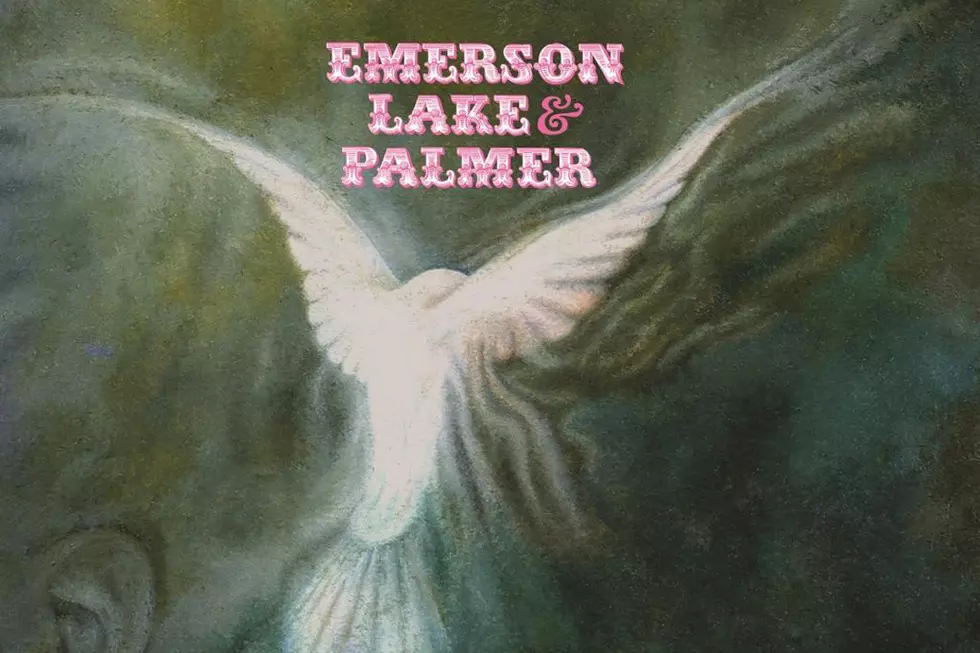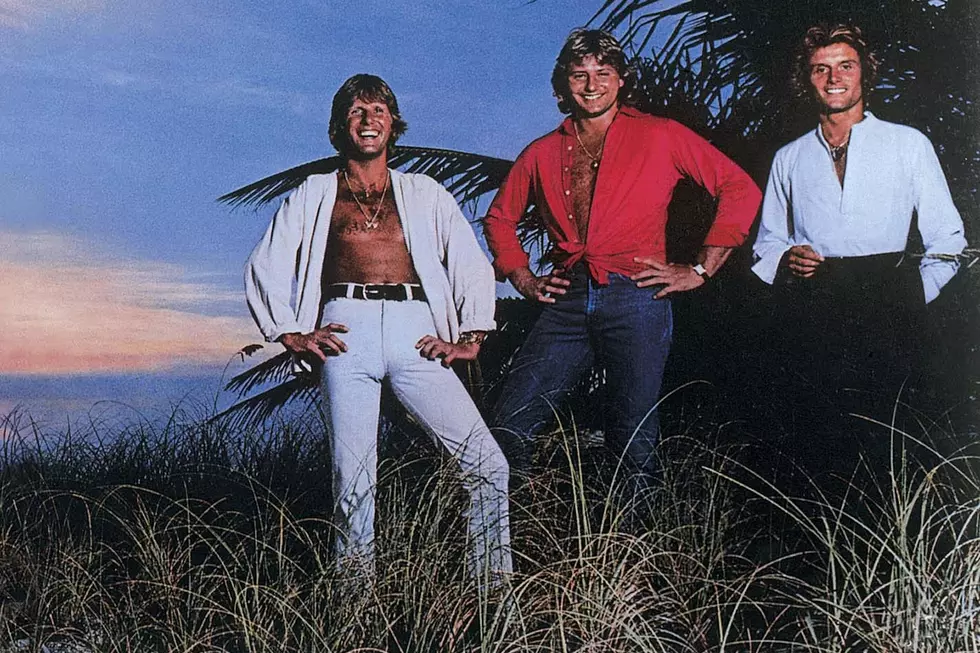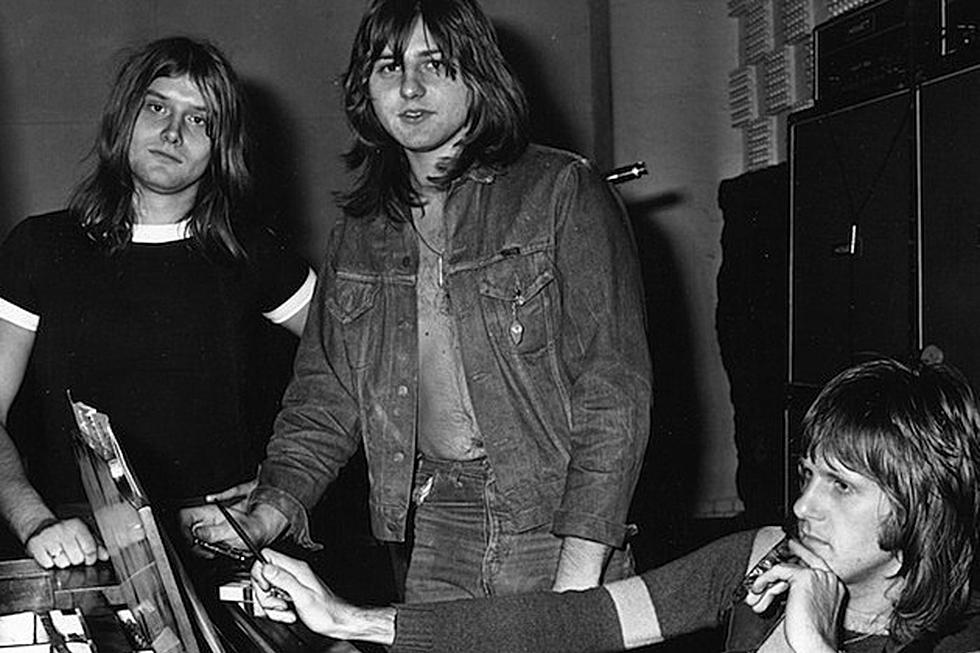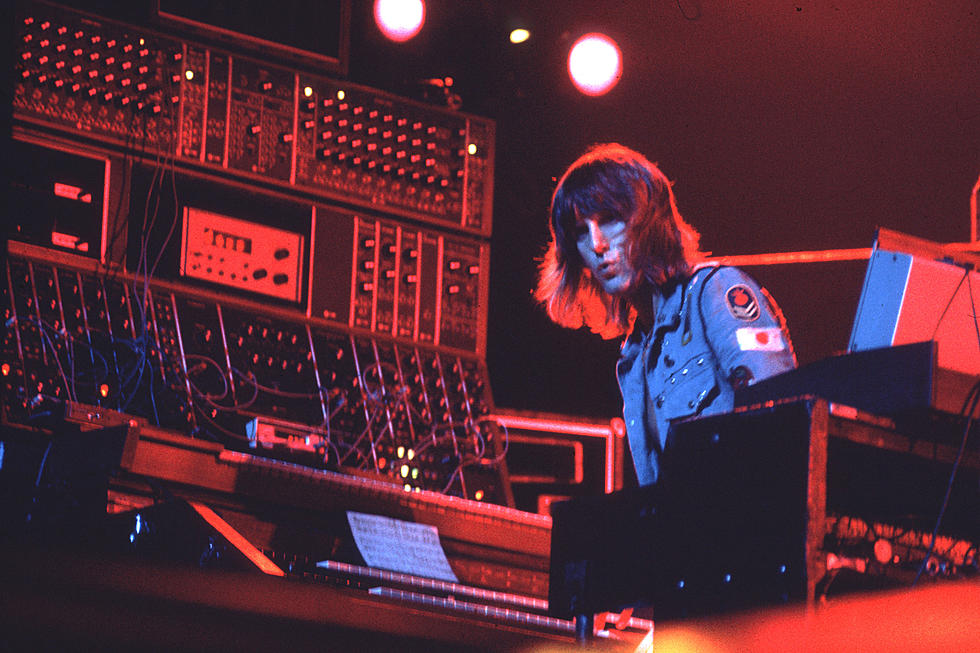
When Emerson, Lake & Palmer Made Their Bombastic Debut
Emerson Lake and Palmer eventually came to represent the polarizing extremes of progressive rock: Few bands could match the visceral thrill of their bombastic technique, but their million-notes-a-minute style could be exhausting. The trio's self-titled debut LP, released on Nov. 20, 1970, cemented that legacy in 41 minutes.
The album arrived less than three months after the band's deafening breakout performance at the Isle of Wight Festival, an awesome spectacle of classical-rock insanity that featured cannons fired from the stage. And a bulk of the LP's material came from that iconic live set.
Opener "The Barbarian" is a heavy adaptation of Béla Bartók's 1911 piano piece Allegro Barbaro, boasting Keith Emerson's volcanic Hammond organ and Greg Lake's battering ram fuzz bass. The piano-driven epic "Take a Pebble" showcased a more subtle side – at least by ELP standards – with an atmospheric vocal melody reminiscent of King Crimson's "Moonchild," proving Lake hadn't distanced himself too far from his former cohorts. Elsewhere, there's Janáček and Bach-quoting Hammond organ orgy "Knife-Edge," Carl Palmer's jazzy percussion showcase, "Tank," and the classical-jazz lunacy of "The Three Fates," which was full of Latin piano lines and clattering percussion.
But the album's true centerpiece is its most uncharacteristic. Greg Lake wrote the band's first hit, the gently anthemic "Lucky Man," at age 12, which might explain why it's the most accessible song in their discography. A respite from the bombast, it's a rare Emerson Lake and Palmer track built on a simple chorus hook (check those breathtaking, stereo-panned harmonies) – only the keyboardist's whirring synth climax adds a touch of dissonance.
"What motivated me really was my mom had just bought me this guitar, and I was really pleased," Lake told Songfacts. "I'd learned the first four chords. And with these early chords, I just wrote this little song, but I never even wrote it on a piece of paper. I just made it up in my head, and that was it. But for some reason, I never forgot the lyrics."
The bassist-singer may have written the tune as a pre-teen, but its words resonated in a dramatic way he never would have expected.
"The lyrics never changed, but strangely enough, over time the way that people perceived the song changed," he continued. "Perhaps it was vaguely something to do with the Vietnam War, that period, just at the end of the Vietnam War. Some people associated it with the John F. Kennedy assassination. It had those sort of overtones. So it was connected in a way to an era when there was a lot of war and drama like that. But the lyrics really got interpreted in a way in which I'd never intended them to be, of course, when I wrote it as a young kid."
The U.K. release was an immediate success, peaking at No. 4 on the charts, with an American version following two months later. Emerson Lake and Palmer would keep refining this formula – excess with bursts of levity – throughout the decade. But they never made a more well-rounded album than their groundbreaking debut.
Bach and Roll: See ELP Among Best Rock/Classical Crossovers
More From Ultimate Classic Rock









